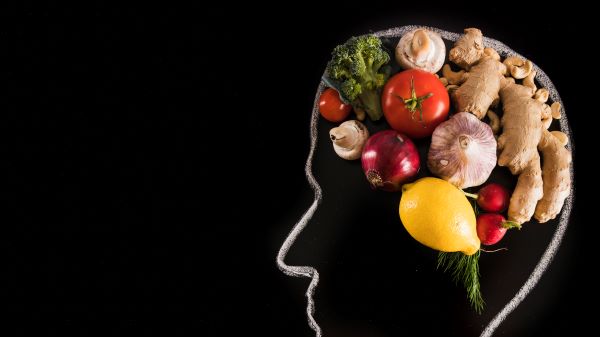The possibility of losing our cognitive abilities can be even scarier than the loss of physical abilities as we age. There are an estimated 5.5 million Americans with Alzheimer’s, affecting millions more people caregiving for loved ones affected by the devastating disease, with no cure at the present moment. Therefore, many seniors and their families are wondering what they can do to be proactive and prevent the onset of Alzheimer’s.
· 5.3 million of the 5.5 million Americans affected by Alzheimer’s disease are over age 65.
Many studies have shown there are a plethora of measures everyone can take to avoid Alzheimer’s disease, including:
· Exercise regularly
· Get enough sleep
· Learn new things
· Connect socially
While all of the above are healthy living practices everyone should follow, for the purposes of this article, we’re going to focus specifically on the impact a potentially revolutionary nutrition plan called the MIND diet can have on Alzheimer’s prevention for seniors.
The name MIND diet surprisingly isn’t in reference to the diet’s supposed ability to improve cognitive functioning. Rather, it stands for Mediterranean-DASH Intervention for Neurodegenerative Delay. The MIND diet meal plan is essentially a combination of two popular diets, the Mediterranean and DASH, with an emphasis on brain foods shown to improve cognitive functioning.
THE HISTORY OF THE MIND DIET
Dr. Martha Clare Morris, an expert in nutritional epidemiology at Rush University Medical Center in Chicago, introduced the MIND diet meal plan in 2015. Her studies on the diet tested and compared the effects of the Mediterranean, DASH, and MIND diets in adults aged 58-98 years. The study found that diligently sticking to all three diets was associated with a reduced risk for Alzheimer’s disease, but only the MIND diet showed lower risk even with moderate adherence. Another study showed that participants who stuck to the MIND diet lowered their risk for Alzheimer’s by 54%.
In addition to the MIND diet’s effect on Alzheimer’s prevention, Dr. Morris and her colleagues recently studied the diet’s effect on the cognitive decline of stroke survivors. Those in the study who were highly adherent to the MIND diet had substantially slower rates of cognitive decline than people who didn’t follow the diet.
Given the newness of the MIND diet meal plan and relatively few scientific studies conducted, scientists still need to do more research, but the early results are certainly very promising. Some have even coined the phrase “Alzheimer’s diet” when referencing the MIND diet meal plan, and US News and World Report ranked the MIND diet #5 in its list of Best Diets in 2018.
Certain brain foods like fruits and vegetables are key components of the MIND diet and have been shown to improve cognitive functioning.
FOODS TO EMPHASIZE
If you choose to follow the MIND diet for yourself or integrate it into the meal plan of a senior loved one, here are the brain foods you’ll want to emphasize and recommended number of servings/week:
- Leafy greens (spinach, mixed greens, kale): aim for at least 6 servings of leafy greens per week. In addition to cognitive benefits, leafy greens are high in vitamin K and many other essential nutrients.
- Other veggies: in addition to leafy greens, try to eat one additional serving of vegetables per day.
- Berries: aim for two or more servings a week. Smoothies are a great for seniors to get their weekly servings of berries.
- Nuts: five servings per week. Nuts are also a great source of protein and healthy fats.
- Whole grains: three or more servings a day. Common whole grains include brown rice and whole-wheat pasta.
- Olive oil: replace butter with olive oil, and use it as your primary oil for cooking. Keep in mind that when sautéing, it’s better to use standard olive oil than extra virgin olive oil.
- Wine: a glass of wine, particularly red, a day has been proven to have cognitive benefits.
- Fish: at least one serving per week. Salmon is especially beneficial and is loaded with Omega-3 fatty acids that have cancer-fighting properties.
- Legumes: at least three servings a week of beans or other legumes (peanuts, peas, lentils).
FOODS TO AVOID
Some foods to avoid include:
- Red meat: aim for less than four servings per week, and chose leaner cuts. Think tenderloin, not rib eye.
- Butter and margarine: less than a tablespoon daily.
- Cheese: less than one serving per week.
- Added sugar: avoid or limit unhealthy desserts, no more than five servings per week. Instead of pastries and ice cream, try dark chocolate.
- Fast food: it’s best to eliminate fast food altogether because it’s typically loaded with sugar and sodium.
One of the big benefits of the MIND diet meal plan is that it’s not a “fad diet” and doesn’t require you to eliminate lots of foods from your diet. Rather, it calls for moderation of unhealthy foods and emphasizing healthy brain foods. This makes the MIND diet easier to follow for seniors than more extreme nutrition plans like the Paleo diet or Vegan diet.
TIRED OF COOKING?
If you or a senior in your life are interested in trying out the MIND diet, but don’t like cooking, learn more about our revolutionary new meal that can customize affordable meals for almost any diet.
Article contributed by: Mary Kay Gill; Chefs for Senior/Hilton Head; 843-575-3922
Image by Freepik.

